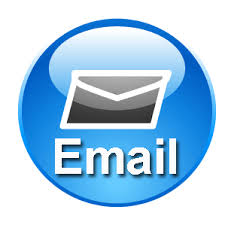It is a rhetorical question. I already know the answer. You are. I was too.
Recently, I conducted some serious soul searching regarding my own productivity. I’m an idea person and the list of things I’d really like to do is usually long. The problem I was faced with though was that I wasn’t executing on most of them. Other projects I was working on seemed to take much longer than necessary. I wanted to find out why.
What did I do? I studied my habits. I looked closely at where I was spending my time every day. What I discovered, although it wasn’t a shocking surprise, was that I was being sucked into email and ending up stuck there off and on throughout the workday.
You know exactly what I’m talking about. Don’t you?
Here is how it would go. I’d clear emails and then realize I’d better get started writing that blog post, preparing my material for the next client program or making those sales calls needed to bring in revenue. I’d be making great strides and then bam…that urge to check email. I’ve read various reports that say that once you do that, it can take as long as 20 minutes to get yourself back into the groove again and pick up where you left off. Maybe you never even get back to where you were.
Email addiction is a big problem and it is costly in more ways than one. This obsessive compulsion to be always “on” is robbing people of their productivity, the opportunity to be present with friends and family and the opportunity to enjoy life without constantly stressing out about what they think they might be missing.
In April 2010, Tony Schwartz of the Energy Project posted a poll on Huffington Post about workplace experience. A question about email was included. Here’s what they found out:
“Out of 1200 respondents, some 60 percent said they spend less than two waking hours a day completely disconnected from email. Twenty percent spend less than a half hour disconnected.”
Less than half an hour of your waking time disconnected? Seriously, that’s sad.
I love what Brendon Burchard has to say about email. He says, “Beware of your inbox, it’s nothing but a convenient organizing system for other people’s agendas.” That really stuck with me and two weeks ago, I made a decision.
No email before 12 noon each day. The only exception I make is if I have meetings scheduled, I will “scan” to see if meeting times have been changed. Even if they have, I do not respond before 12 noon.
My new habit is working. In addition to completing client work and bringing in new business, I have:
- Completed an e-book
- Finished my Sales Meets Social Media training course and facilitator program
- Recorded an audio series
- Recorded several new videos
- Written blog posts
- Begun my plans to create an interview series of top sales pro’s
If you are reading my post, I’m going to ask you to challenge yourself to set boundaries with respect to email. After all, whose agenda is more important - yours or theirs?

